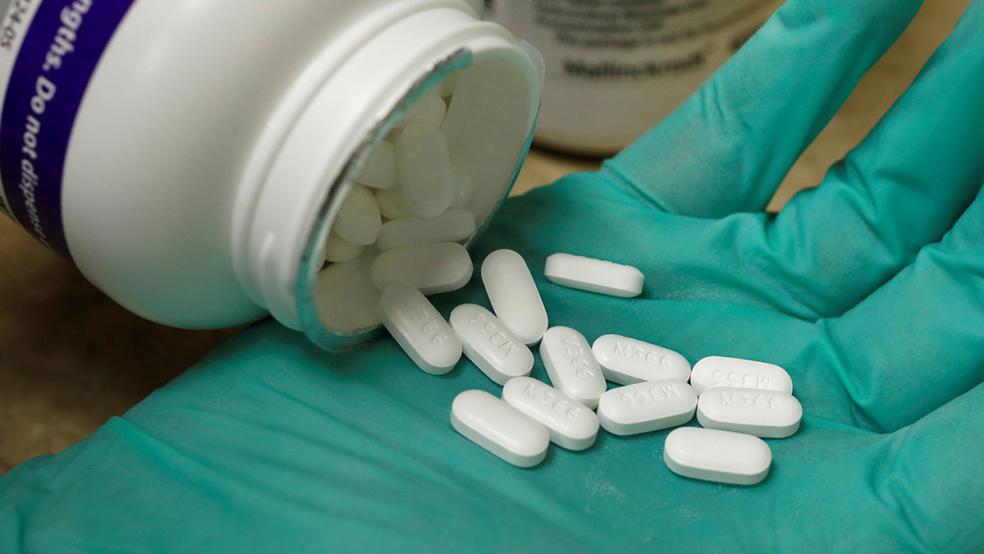There was a time not long ago that the pharmaceutical industry was in a panic over a mounting call for prescription drug price controls and other measures to protect consumers and government agencies from the runaway costs.
President Trump took office last January complaining that the drug industry was “getting away with murder” by gouging consumers and government programs like Medicare and Medicaid. He and a host of Republican and Democratic lawmakers bandied about a number of measures to rein in Big PhRMA.
Related: How Big Pharma Lobbyists Keep Medicare Drug Prices High
Those included granting Medicare officials more authority to negotiate drug prices with manufacturers, allowing the importation of cheaper drugs from Canada and other countries, pressuring the Food and Drug Administration (FDA) to speed up the approval of generic drugs to compete with more expensive brand name drugs, offering tax incentives to curtail prices or even creating a new government oversight board to discourage drug companies from significantly ratcheting up their prices.
If all else failed, Trump suggested he would continue to use his businessman’s power of persuasion to jaw bone drug companies into bringing down prices. To show he meant business, Trump conferred with a prominent senior House Democrat, Rep. Elijah C. Cummings of Maryland, who along with Sen. Bernie Sanders (I-VT) have battled the pharmaceutical industry for years and co-sponsored one of the toughest price control bills in Congress
The drug companies and their main trade association, The Pharmaceutical Research and Manufacturers of America, geared up for what was likely to be a major confrontation this year on Capitol Hill to block the most onerous of regulation efforts. PhRMA spent $7.9 million in just the first three months of this year — a record amount for a single quarter since 2008, according to a report by STAT News.
Moreover, the 10 largest drug companies that lobby in Washington and state capitals around the country together spent more than $20 million of their own in the first three months of this year. PhRMA and its affiliated drug companies deployed 85 lobbyists to tamp down the threatened political uprising of lawmakers – many of whom traditionally have been closely aligned with the drug industry and have received generous campaign contributions.
Related: Trump Moves Quickly on Pledge to Contain Drug Prices – but Can He Do It?
And from all indications, the pricey lobbying effort has been paying off handsomely.
Last week, for example, the Senate Health, Education, Labor & Pensions (HELP) Committee held the first of three scheduled hearings on the problem of high drug prices, which potentially offered a venue for tough rhetoric and creative thinking for ways to suppress soaring drug prices.
Drug prices have climbed at a double-digit rate in the past few years and are projected to continue to rise at that rate this year. Over the past two years, the country has been victimized by troubling cases of price gouging by pharmaceutical companies by as much as 1,000 percent to 5,000 percent for some life-saving drugs.
But according to a report by Rachel Sachs of Health Affairs, the meeting proved to be something of a snooze fest. While senators from both parties denounced soaring drug prices, no one from the industry had been called to testify and respond to the complaints. Presumably, that will be done at one of the later hearings.
The meeting was primarily organized to elicit basic information from independent experts about industry pricing practices. Yet almost from the start, the Democrats were more intent on blasting Senate GOP leaders for secretly negotiating a bill to repeal and replace the Affordable Care Act than talking about drug prices.
Related: Two Big Reasons Prescription Drug Prices Are So Much Higher in the US
The “partisan dynamic” became even more pronounced, Health Affairs said when Committee Chair Lamar Alexander (R-TN) and Sens. Susan Collins (R-ME) and Lisa Murkowski (R-AK) all left the room to attend a closed-door health care lunch with President Trump.
When the subject finally turned from Obamacare to drug prices, the hottest subject discussed was the efficacy of moving towards a “value-based” pricing system for government contracts. The idea there is to attempt to calculate a single price for a certain drug, based on its effectiveness and value to a patient. It’s a complicated concept, and some warn that trying to bring it to fruition could take many months or even years – if ever.
PhRMA appears to be having equal luck in lobbying a major reauthorization of the pharmaceutical industry’s funding agreement with the FDA in which drug companies pay fees to finance the agency’s regulatory and research activities, which are vital to the development of new drugs.
Erin Mershon, writing for STAT, noted that “At least so far, the powerful pharmaceutical industry has managed to keep the package that is speeding toward Trump’s desk free of any controversial policy changes that could threaten the industry’s business model — as well as any partisan add-ons that could jeopardize its smooth, overwhelmingly bipartisan trip through the policymaking process.”





